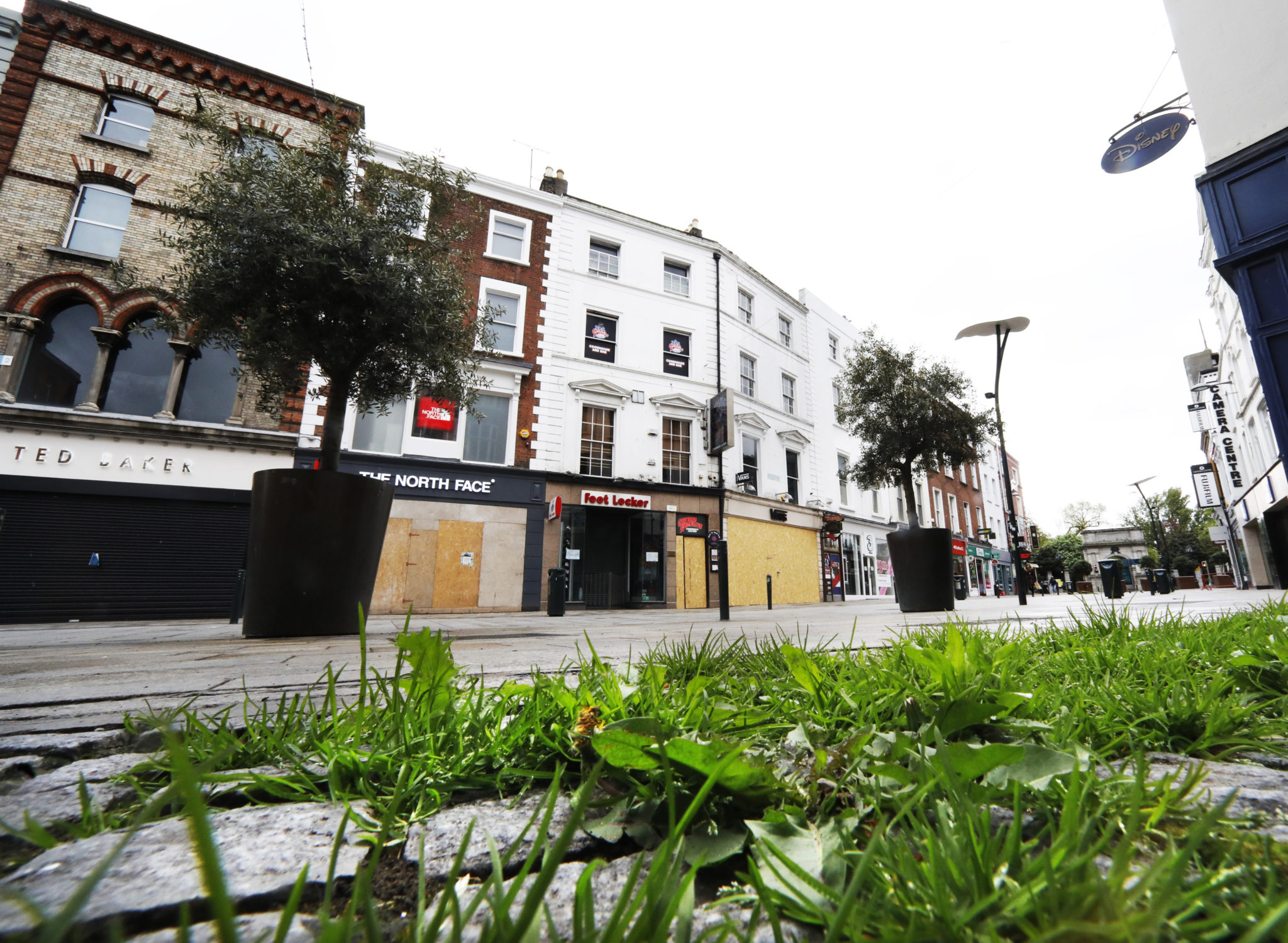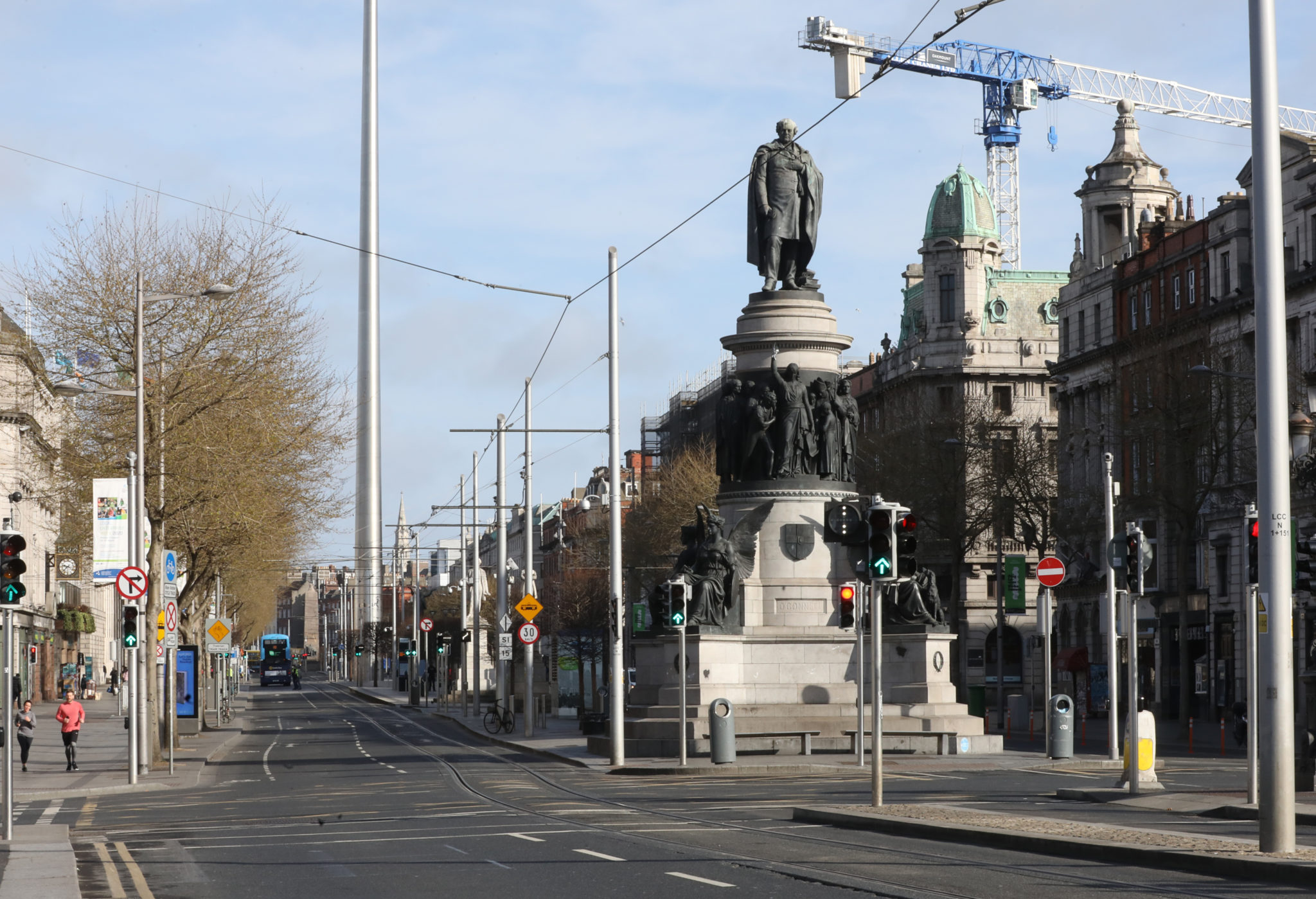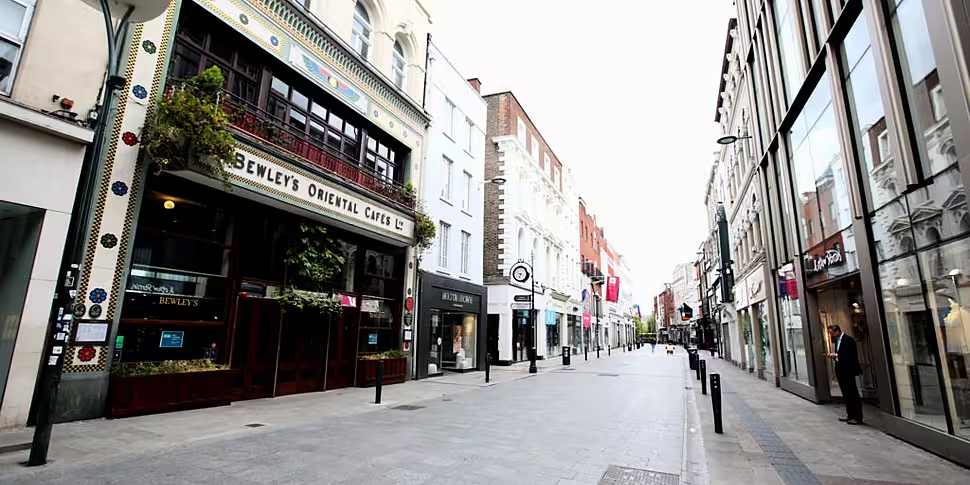The COVID-19 crisis could see indirect tax revenue fall by up to €6.7bn this year.
The Economic and Social Research Institute said the amount the Exchequer receives in VAT and other taxes will fall by between 12% and 20% as people spend less due to the coronavirus restrictions.
The research predicts what might happen under three scenarios:
- Vaccine
- The new normal
- Second wave
It found that, if a vaccine becomes available this year, the drop in household spending for the year will sit at around 12%.
It said that this would an 18.7% fall in indirect tax revenue (IDR) because the areas of spending that are most affected are taxed at the highest rates.
 Grafton Street in Dublin City Centre, 29-04-2020. Image: Eamonn Farrell/RollingNews
Grafton Street in Dublin City Centre, 29-04-2020. Image: Eamonn Farrell/RollingNewsUnder the worst-case scenario, where a second wave of the virus in the Autumn forces a second lockdown, the study found that household spending for the year would fall by 20% leading to a fall in IDR of 31.7%.
It said this would see the Exchequer taking in between €3.9bn and €6.7bn less than planned through indirect tax.
On Newstalk Breakfast this morning, Dr Conor O’Toole, Senior ESRI researcher and co-author of the study, said indirect taxes could fall by just over €4bn in the ‘new-normal’ scenario.
“The bad scenario is that we would see about a third of the indirect tax take fall away and that is just under €7bn in total,” he said.
“The overall tax intake is about €21bn from indirect tax so that is a sizable chunk of that tax revenue falling away from this particular source alone.”
 A nearly abandoned O'Connell street in the morning sunshine today, 06-04-2020. Picture by: Leah Farrell/RollingNews
A nearly abandoned O'Connell street in the morning sunshine today, 06-04-2020. Picture by: Leah Farrell/RollingNewsHe said the research does not take account of the falls in other taxes that will occur as a result of the lockdown.
“Naturally, the economic shock associated with this pandemic is extraordinary, it has never been seen in modern times before,” he said.
“All the revenue items on the taxation front will be very seriously affected.
“So, when we say that indirect taxes will fall away, we don’t take into account in this particular piece of research of corporation tax or income tax or any other tax items that may also respond quite sizebly to the major economic shock we are experiencing.”
ESRI Research Assistant and co-author Cathal Coffey said this indirect tax take is “likely to be more than a fifth lower this year, even in the most optimistic scenario considered.”









